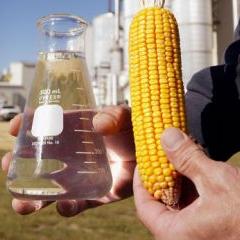What Are Disadvantages of Ethanol Alternative Fuel?
Dec 13
The alternative fuels definition tells us that alternative fuel is fuel that is made from sources other than oil. To help you decide which is the better fuel ethanol or biodiesel this article will break down some of the disadvantages of ethanol alternative fuel.

Ethanol alternative fuel is an alcohol produced from corn. The biggest producer of ethanol is Brazil. The United States has not approved 100% ethanol as a fuel and currently it must be mixed with gasoline. There are several pros to ethanol alternative fuel but there are downsides also.
1.Ethanol price instability
Ethanol prices vary greatly even more so than traditional gasoline. In the battle of ethanol or biodiesel ethanol alternative fuel does not have the stability of biodiesel.
2.Ethanol alternative fuel produces less energy than gasoline
Most alternative fuels definition leaves out the fact that ethanol alternative fuel produces less energy than gasoline and usually decreases fuel economy as much as 30%. Even if ethanol happens to be cheaper than gasoline since more filling up is required the consumer may ultimately end up spending more money.
Ethanol is mainly available in the Midwest. For example, California and Texas have less than 100 combined ethanol stations.
4.Ethanol production takes up too much land
Ethanol is made mainly from corn. Opponents of ethanol say that corn crops used for food and corn crops made for fuel would end up competing for land making the price of land and corn raise. These price increases could cause a trickledown effect and raise prices of other items and services.
Related Posts
- Alternative Fuel Systems Can Change The Future
- Biodiesel Production: Growing Fuel on Trees
- The Science and Business of Bioeconomy: the Problems of Weaning off of Synthetic Fuels
- Biomass fuel: low cost and high rewards
- Benefits of Bio Fuel Production to the World
You Can Use This Form to Leave Your Feedback or Ask Additional Question
You must be logged in to post a comment.




